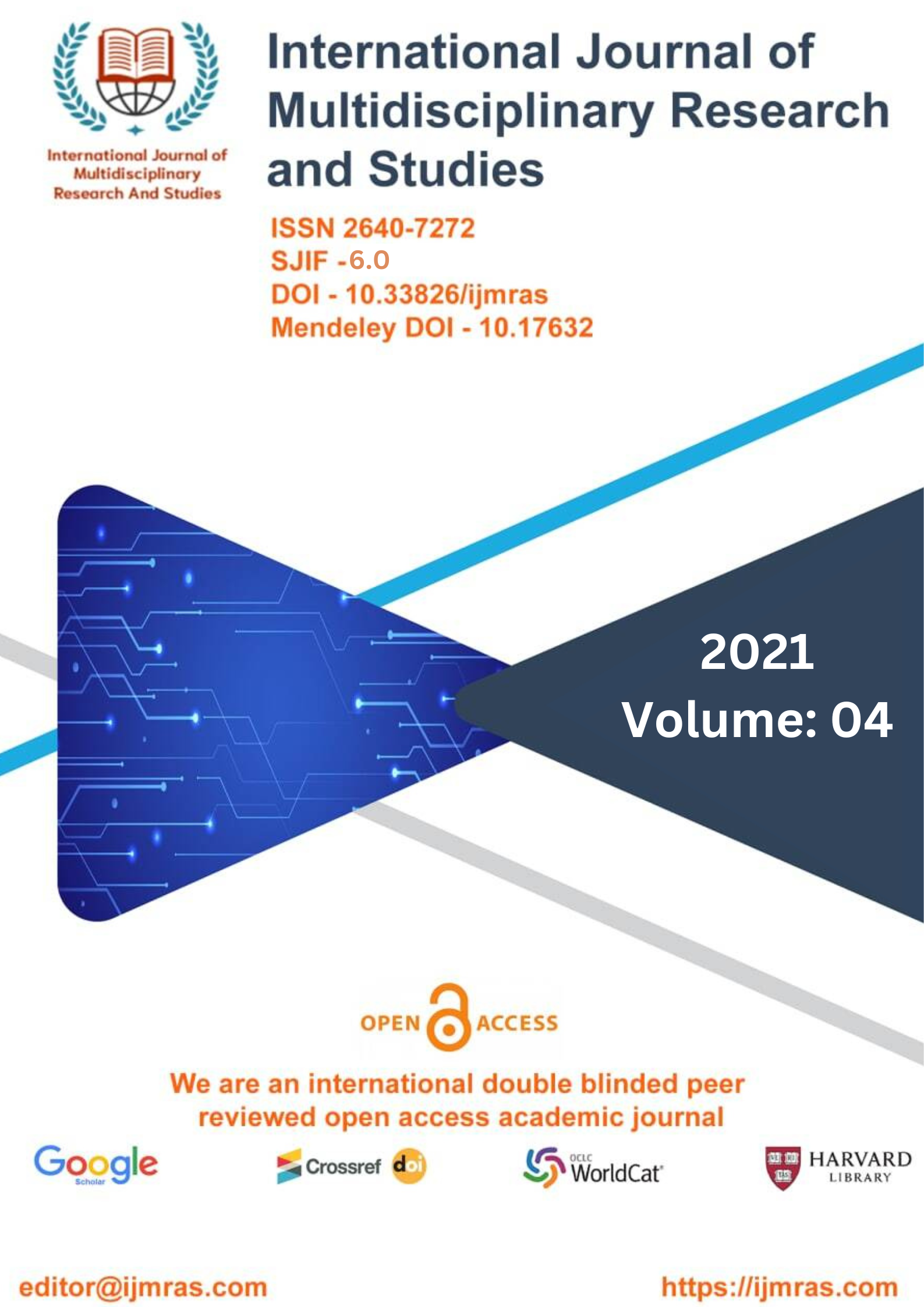STUDY ON RALPH WALDOEMERSON’S PROSE IDEALS RESEARCH

Abstract
Ralph Waldo Emerson (1803–82), an American writer, poet, and popular philosopher, began his professional life as a Unitarian pastor in Boston. However, he went on to become a well-known lecturer and the author of such writings as "Self-Reliance," "History," "The Over-Soul," and "Fate." Emerson created a process metaphysics, a mood epistemology, and a "existentialist" self-improvement ethics by drawing on German and English Romanticism, Neoplatonism, Kantianism, and Hinduism. He had an impact on generations of Americans, including his friend Henry David Thoreau, John Dewey, and Friedrich Nietzsche in Europe, who took up topics like power, fate, the uses of poetry and history, and the criticism of Christianity.
Keywords
History, authorHow to Cite
References
Anderson,JanetM.“EllenEmersonandtheTubercularMuse.”LiteratureandMedicine
18,no. 1(1999): 39-59
Bales, Kevin. “Slavery and the Human Right to Evil.” Journal of Human Rights 3, no. 1(2004):53-63. DOI:10.1080/1475483042000185224.
Buell, Lawrence. “The Unitarian Movement and the Art of Preaching in 19th-CenturyAmerica.”AmericanQuarterly24,no.2(1972):166-90.DOI:10.2307/2712069.
Bregman, Lucy. PreachingDeath:TheTransformationofChristianFuneralSermons.Waco:BaylorUniversityPress,2011.
Bromell, Nick. “A ‘Voice from the Enslaved’: The Origins of Frederick Douglass’sPolitical Philosophy of Democracy.” American Literary History 23, no. 4 (2011):697-723.
Bush, Harold K. Continuing Bonds with the Dead: Parental Grief and Nineteenth-CenturyAmericanAuthors.Tuscaloosa:TheUniversityofAlabamaPress, 2016.
Cameron, Sharon. “Representing Grief: Emerson’s ‘Experience’.” Representations 15,(Summer1986): 15-41.
Chapman, Mary. “The Economics of Loss: Emerson's ‘Threnody’.” The AmericanTranscendentalQuarterly 16, no. 4 (2002): 73-87.
Dillard,DanielC.“‘TheDeliciousSenseofForeignness’:AmericanTranscendentalismintheAtlantic.”AmericanNineteenthCenturyHistory14,no.2(2013):209-31.
Douglass, Frederick.MyBondageandMyFreedom.1855.Reprint,NewYork:Penguin,2003.
Packer, Barbara. Emerson’s Fall: A New Interpretation of the Major Essays. New York:Continuum, 1982.
Ronda,BruceA.TheFateof Transcendentalism: Secularity,Materiality,andHumanFlourishing.Athens:Universityof GeorgiaPress,2017.eBookCollection.
Rudy, John G. Emerson and Zen Buddhism. Lewiston (New York): The Edwin MellenPress,2001.
Saum, Lewis O. “Death in the Popular Mind of Pre-Civil War America.” AmericanQuarterly26, no. 5 (Dec.1974):477-95.
Sekora, John. “‘Mr. Editor, If You Please’: Frederick Douglass, My Bondage and MyFreedom, and the End of the Abolitionist Imprint.” Callaloo 17, no. 2 (Spring1994):608-26.
Stannard, David E. “Death and Dying in Puritan New England.” The American HistoricalReview78, no. 5 (Dec. 1973): 1, 305-30. DOI:10.2307/1854094.
Strauss, Mark. “When Is It Okay to Dig Up the Dead?” National Geographic, 7 April2016. Web.
“Syrian Civil War Fast Facts.” CNN online, last modified May 3, 2018.
License
Copyright (c) 2021 Ravi Shankar Prasad

This work is licensed under a Creative Commons Attribution 4.0 International License.
Individual articles are published Open Access under the Creative Commons Licence: CC-BY 4.0.




